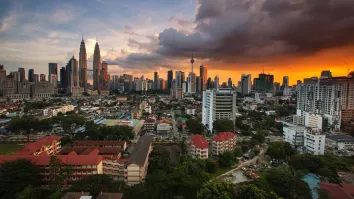
APAC hotel market finally emerged from hibernation: Savills
Hotel room rates were underpinned by pent-up demand.
In a recent report, Savills noted that after a strong rebound in late 2022 amid the staggered reopening of some major regional economies, the Asia Pacific hotel market has finally emerged from its hibernation.
“The release of pent-up demand during the early part of 2023 boosted hotel room rates significantly, and ten of the 14 prime hotel markets in the region recorded growth during the first six months of the year,” the report said.
Here’s more from Savills:
Local room rates rose above pre-pandemic peaks in many markets, with Tokyo leading the expansion with a bumper 122% YoY rise while others including Seoul, Hong Kong SAR, Taipei, Beijing, Ho Chi Minh City, and Hanoi also witnessed room rate hikes of 20% to 40% YoY.
While room rate rises were driven by the influx of international tourists and their ‘revenge spending’, they also reflected a lack of capacity in many areas including staff shortages, limited flights, rising fuel prices and operational costs as post-pandemic inflation took hold.
As such, the recovery in occupancy has been much slower than expected, with most markets in a range of 60% to 80% in 1H/2023 compared with the 70% to 90% levels recorded pre-pandemic. It should be remembered that major economies in the region were some of the latest worldwide to relax border controls.
In terms of volume, international tourist arrivals are projected to reach 56% of 2019 levels in 2023 and 84% by 2024 for the Asia Pacific region according to Oxford Economics. Mainland Chinese travellers, who used to be the largest source market for the region, have been slow to return due to visa restrictions, limited airlift capacity, and increasing travel costs.
The passports of about 20% of Chinese travellers expired during the COVID-19 period based on Mckinsey estimates and while renewals are now possible, the backlog and the subsequent wait times has further delayed any recovery.
Meanwhile, the passenger capacity for international air routes only recovered to about 23% of 2019-levels in 1H/2023 across mainland China, resulting in a rise of 20% to 30% on average in prices for outbound group tour products on major online booking platforms, prompting more cost-conscious travellers to stay at home instead. As such, we have seen the strongest rebounds in destinations with a diverse source market profile less dependent on Chinese visitors.
In 1H/2023, Tokyo tallied the strongest arrivals with a 118% rebound in international arrivals compared to pre-pandemic levels, followed by Sydney at 84%, while most other major destinations ranged from 60% to 70%. Looking across the region, Hong Kong SAR has historically relied most on mainland Chinese arrivals who accounted for 78% of the city’s inbound travellers in 2019, and the city is therefore one of the worst performing markets currently. Recovery has been muted in other markets like Seoul and Taipei, where 30% of arrivals used to come from mainland China.
According to a report released by the China Tourism Academy, Macau SAR and Hong Kong SAR remained the most popular destinations in 1H/2023, receiving about 51% and 27% of outbound mainland Chinese tourists. Neighbouring countries like Thailand (3%), Japan (2%), Singapore (2%), South Korea (2%) and Myanmar (1%) are also popular, but not to the same degree.
Not surprisingly, many markets in the region are actively trying to encourage the return of this major travelling group. Thailand was one of the first to be approved for group tours by the Chinese government, and it has also introduced a visa waiver scheme for mainland Chinese travellers running from September 25th until February 2024, covering the major holiday seasons. The Thai government says that this will drive 2.88 million Chinese visitors during the five-month period, slightly higher than the 2.34 million Chinese visitors who visited in the first eight months of 2023.
The recent addition of Australia, Japan, and South Korea to the approved list, should bolster demand in those respective destinations, although any impact is weighted toward the longer-term. South Korea has waived visa processing fees for Chinese tourists through to the end of December and increased flights between the two countries.
Taiwan has resumed short term business travel visas and issuance of travel permits to mainland Chinese tourists who have lived outside mainland China since September, though tourism activity between these two regions is expected to remain sluggish amid geopolitical concerns.



















 Advertise
Advertise






